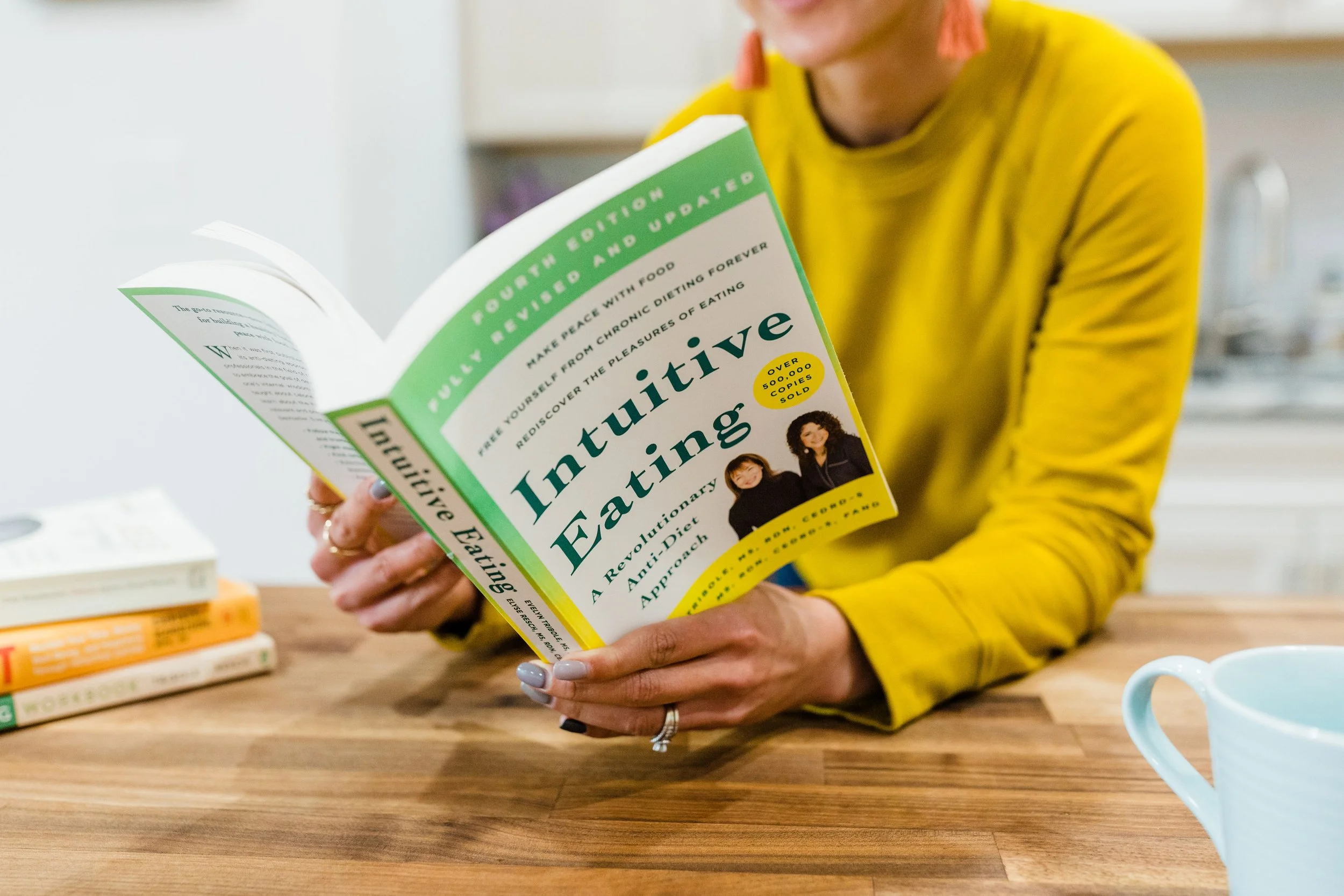Introduction to Music Therapy
Music therapy is the clinical use of music-based activities to support therapeutic change. Learn more about this new offering from the Collaborative Counseling and Nutrition Team!
The Difference Between Disordered Eating and Eating Disorders
Today on the blog we are diving into the difference between disordered eating and eating disorders. Learn the differences and what to look for.
What is PCOS?
Polycystic Ovary Syndrome, also known as PCOS, falls under the umbrella of women’s health, but what does being diagnosed with PCOS really mean? Learn more about how we approach and treat PCOS at Collaborative Counseling and Nutrition.
Creating Your Own Joyful, Intuitive Movement Practice
Joyful, intuitive movement aims to remove guilt, shame, rules, punishment, and body manipulation and replace it with pleasure, joy, intuition, and freedom. It comes from a place of self-care rather than self-control.
8 Ways to Support Yourself During Tough Body Image Days
Navigating body grief and tough body image days can be really difficult. Grab these tips for how to support yourself!
What is Body Grief?
Bodies change throughout our life. It’s normal and it’s supposed to happen. Yet, in our culture, body change is often seen as a bad thing. Add in how difficult it is to live up to our culture’s unattainable body standards and body grief makes sense. Today’s post dives into the various stages of body grief.
Activity Trackers: Helpful or Harmful?
Fitness tracking apps quickly remind us the primary goal of movement should be hitting step goals, achieving 7-day workout streaks, beating your friends in challenges, and of course, losing weight. Learn more in today’s blog post!
What is Orthorexia?
Today we want to share information about another eating disorder diagnosis our team sees on a regular basis, Orthorexia. In the New Year, the focus in January is often on starting a new diet, losing weight, taking control of your health, incorporating new health behaviors, cutting out certain food groups, and more. While there is no singular cause of an eating disorder, diet culture behaviors, and mindset can contribute to the development of eating disorders, including orthorexia.
10 Tips for Creating a Self-Care Practice
Self-care has become a buzzword over the last handful of years. From promoting bubble baths to treating yourself to an expensive coffee drink, and more it can be difficult to know what self-care actually means and what it can do for us. We want to share 10 tips for creating your own self-care practice!
3 Practices to Cultivate Self-Compassion
We understand that it can be easier to show compassion for others than for yourself. We aren’t claiming that self-compassion can be cultivated at the snap of a finger. Instead, our aim is to introduce you to simple ways of practicing self-compassion for improved mental and physical well-being.
4 Tips for Navigating the Holiday Season
The holiday season can bring a significant amount of joy; however, it also presents its fair share of challenges. Grab 4 tips to help navigate this holiday season.
Binge Eating Disorder (BED)
Binge Eating Disorder (BED) is the most common eating disorder in the United States. Learn more about BED and ways to find help.
What is Intuitive Eating?
Intuitive Eating is an anti-diet framework for helping you tune into and honor your body’s needs. Today’s post covers the difference between a diet approach and an intuitive eating approach, provides insights into each principle, and more!
Is it really about the weight?
We understand that talking about bodies is a big topic, with a lot of nuances. We aren’t claiming to know all the answers or know what works best for your body and your life. Instead, our aim with this post is to provide insights that get you thinking critically about the role of (intentional) weight loss and its impact on your physical, mental, and emotional health.
Avoidant/Restrictive Food Intake Disorder (ARFID)
We work with individuals with a variety of eating disorder diagnoses. Today, we want to share details about an eating disorder not often discussed, Avoidant/Restrictive Food Intake Disorder, or, ARFID.
5 Strategies to Honor Your Hunger
Honor Your Hunger is the second Intuitive Eating Principle. Hunger is a biological signal from our body telling us it’s time to eat! Today, we are sharing 5 ways you can honor your hunger!




















